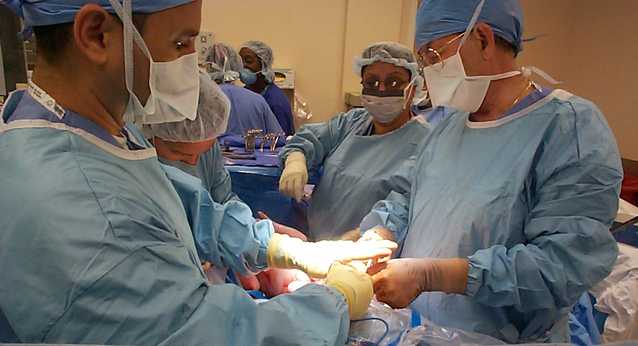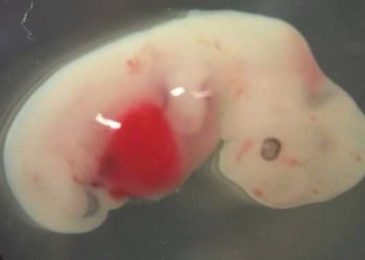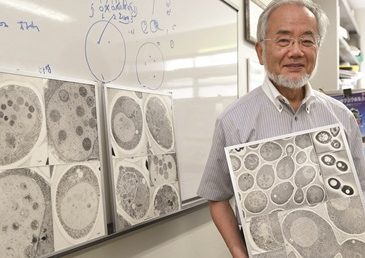
Why is obstructed labor such a common complication during human childbirth? A team of evolutionary scientists thinks recent human evolution and the modern practice of childbirth via C-section contribute to the problem.
Obstructed labor happens when a baby is unable to smoothly pass from the mother’s womb through the birth canal. A major cause of both maternal and newborn morbidity and mortality, obstructed labor is especially common in poorer countries and results in thousands of deaths each year.
From an evolutionary perspective, the prevalence of obstructed labor is puzzling, especially because it is more common in humans than in primates. Why has the human body not evolved to fix the problem? Shouldn’t natural selection favor women with larger pelvic dimensions, thus making childbirth easier and safer?
“Compared with other primates, human childbirth is difficult because the fetus is large relative to the maternal pelvic canal,” wrote a team of American and Austrian scientists in a journal article recently published in Proceedings of the National Academy of Sciences (PNAS). “It is a long-standing evolutionary puzzle why the pelvis has not evolved to be wider, thus reducing the risk of obstructed labor.”
Some scientists believe the human pelvis has not evolved to be wider because that would make walking more difficult. However, the researchers writing in PNAS say “the biomechanical benefit of a narrow pelvis presumably is small.” In other words, the major advantages of having a larger pelvis outweigh any minor disadvantages it may cause.
Why then, if evolution is true, have humans not evolved wider pelvises? To address this quandary, the researchers turned to Caesarean sections. Caesarean sections, commonly known as C-sections, are an increasingly common procedure, with about one in three babies born in the U.S. delivered via C-section.
“In industrialized countries, Caesarean sections have minimized maternal mortality due to obstructed labor,” the scientists wrote in their paper.
Because C-sections make possible the safe delivery of large babies that would otherwise be unable to fit through their mothers’ birth canal, the scientists who wrote the PNAS paper believe that C-sections’ popularity is affecting human evolution.
“Our model does not specify the origin of these selective forces, but we found evidence in the medical literature for a reproductive advantage of both large neonates and women with a narrow pelvis, independent of putative biomechanical advantages,” they wrote. “We predict that this weak directional selection has led to a 10 to 20% increase in the rate of fetopelvic disproportion since the regular use of Caesarean sections.”
Scientists who reject the Darwinian model agree that creatures can adapt to their environments to a certain extent. However, they also point out the limits of natural selection.
“It cannot be stressed enough that what natural selection actually does is get rid of information,” wrote Carl Wieland in an article published on Creation.com. “It is not capable of creating anything new.”
“In such an information-losing process, there is automatically a limit to variation, as gene pools cannot keep on losing their information indefinitely,” he continued. “[N]atural selection is a far cry from the creative, ‘uphill,’ limitless process imagined by Darwin.”
A special message from the publisher…
 Dear Reader, because of your generous support, we have received enough funds to send many audio Bibles to Iraqi and Syrian refugees displaced by ISIS in the Middle East. Many have been distributed and received with gladness. Now, as the cold winds of winter blow in, we are seeking to also meet the physical needs of the people by providing fuel-operated heaters for the refugees and their children to stay warm. Would you join us by making a donation today to this important work (James 2:16)? Please click here to send a heater to a refugee family >>
Dear Reader, because of your generous support, we have received enough funds to send many audio Bibles to Iraqi and Syrian refugees displaced by ISIS in the Middle East. Many have been distributed and received with gladness. Now, as the cold winds of winter blow in, we are seeking to also meet the physical needs of the people by providing fuel-operated heaters for the refugees and their children to stay warm. Would you join us by making a donation today to this important work (James 2:16)? Please click here to send a heater to a refugee family >>






